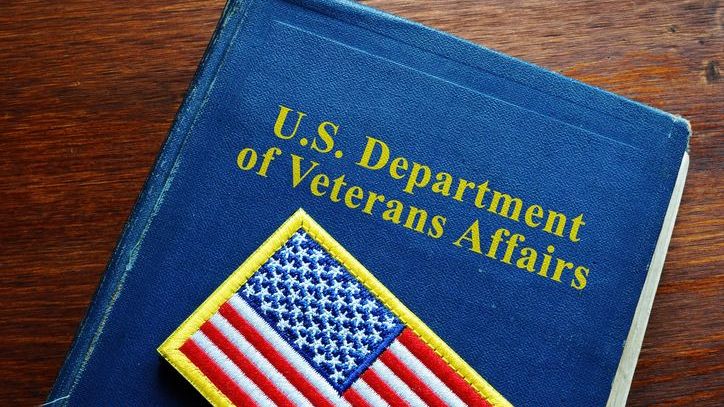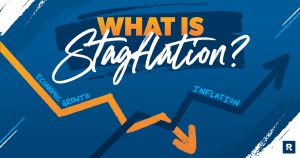As you plan for your retirement and financial future, you may wonder, does VA disability affect Social Security retirement benefits? Rest assured, VA disability benefits do not reduce the amount of Social Security retirement benefits you receive. VA disability compensation is considered an independent benefit and is not counted as income for Social Security purposes. Understanding these distinctions can help veterans maximize their benefits without worrying about one type affecting the other.
Can Veterans Collect Both VA Disability and Social Security Retirement Benefits?
Yes, veterans can collect both benefits simultaneously without one affecting the other. VA disability compensation and Social Security retirement benefits are entirely separate programs with distinct eligibility criteria and funding sources. Additionally, receiving VA disability payments does not reduce the amount of Social Security retirement benefits a veteran is entitled to receive.
VA disability benefits are provided to veterans who have sustained injuries or illnesses linked to their military service. These benefits are compensation for the reduced earning capacity and other impairments caused by service-related conditions. The amount received depends on the severity of the disability, rated on a scale from 0% to 100%.
Social Security retirement benefits, on the other hand, are based on the veteran’s work history and payment of Social Security taxes. These benefits become accessible starting at age 62, with full retirement age varying depending on the birth year of the veteran. Unlike VA disability benefits, Social Security retirement benefits are calculated based on the average indexed monthly earnings during the 35 highest-earning years of the individual’s career.
If eligible for both, veterans can — and should — apply for both VA disability and Social Security retirement benefits. Each application process is independent, and receiving one benefit does not influence the approval or amount of the other.
Differences Between VA Disability and Social Security

Here are some key differences to note when it comes to eligibility and qualification, benefit amounts and the appeals process for VA disability benefits vs. Social Security retirement benefits.
Eligibility and Qualification
VA disability benefits are specifically designed for veterans who have sustained injuries or developed medical conditions due to their military service. The Department of Veterans Affairs (VA) evaluates these conditions and assigns a disability rating, which determines the benefit amount. Veterans must provide medical evidence linking their condition to their service.
The qualification process for VA disability benefits involves submitting a detailed application to the VA, including medical records and service history. The VA reviews the documentation and may require additional exams or evidence before making a determination. The process can be lengthy and may involve appeals if the initial claim is denied.
Meanwhile, all American workers who have contributed to the Social Security system through payroll taxes are eligible for Social Security retirement benefits. One must have worked and consistently paid these taxes for a minimum of 10 years to qualify.
Qualifying for Social Security retirement benefits is more straightforward than qualifying for VA disability. Workers become eligible for their full benefit at their full retirement age, which varies depending on their birth year (66 or 67). Delaying Social Security until age 70 will increase your benefits by up to 32%, although delaying beyond age 70 does not have any further impact. On the other hand, you can choose to receive reduced benefits starting at age 62.
Benefit Amounts
VA disability benefits are calculated based on the severity of the disability, as reflected in the VA’s disability rating system. Ratings range from 0% to 100%, with higher percentages indicating more severe disabilities and higher monthly payments.
Social Security retirement benefits, however, are calculated based on an individual’s earnings history and the age at which they begin to receive benefits. The Social Security Administration (SSA) uses a formula that considers the highest 35 years of earnings to determine the benefit amount.
Appeals Process
Both benefit programs have appeals processes for individuals who disagree with their benefit determinations.
For VA disability benefits, veterans can appeal the VA’s decision through various stages, including requesting a review or a hearing before a Veterans Law Judge.
Social Security retirement benefit disputes are much less common, but they can be addressed through the SSA’s appeals process. This includes reconsideration, hearings and appeals council reviews.
Planning for VA Disability and Social Security

If you are going to collect both VA disability and Social Security retirement benefits, it is important to understand the tax implications of each, as well as what each type of benefit offers and how you can adjust coverage over time if necessary.
Tax Implications
VA disability benefits are non-taxable and intended to compensate for the loss of earning capacity. Social Security retirement benefits, conversely, are based on the individual’s work history and the amount they have paid into the Social Security system through payroll taxes. Up to 85% of Social Security benefits are taxable.
Healthcare
Healthcare is another critical aspect to consider. Veterans receiving VA disability benefits may be eligible for healthcare services through the VA. However, once they turn 65, they are also eligible for Medicare.
The VA healthcare system provides a range of services, often at a lower cost or at no charge for veterans with service-connected disabilities. Medicare, a federal health insurance program, covers individuals aged 65 and older, as well as some younger individuals with disabilities.
Many veterans choose to use both VA healthcare and Medicare to maximize their healthcare options. For instance, they might use VA services for specialized care related to their military service and Medicare for other general health issues.
Changes to Benefits
Adjustments to benefits and coverage can be necessary over time. Veterans may need to update their VA disability rating if their condition worsens. The VA has a process in place for veterans to request a re-evaluation of their disability rating, which can result in increased benefits. It’s essential to keep medical records up-to-date and provide thorough documentation to support any changes in health status.
Similarly, changes in Social Security benefits can occur, such as cost-of-living adjustments (COLA), which are made annually to counteract inflation. These adjustments ensure that the purchasing power of Social Security benefits is not eroded over time.
Bottom Line
The VA disability and Social Security retirement programs operate entirely independently from one another. VA disability benefits are compensation for service-related disabilities and do not reduce the amount received from Social Security retirement benefits. However, these benefits must be reported to the SSA.
Importantly, receiving VA disability benefits does not affect your eligibility or benefit amount for Social Security retirement. This separation ensures that veterans can maximize their entitlements without one affecting the other.
Social Security Planning Tips
- To maximize your Social Security benefits, consider delaying your claim beyond your full retirement age, as your monthly benefits increase by as much as 8% each year you delay, up to age 70. This strategy is particularly beneficial for those with longer life expectancies or those who continue to earn a significant income in their later years.
- A financial advisor can help you plan for Social Security and decide when the right time to file for it. Finding a financial advisor doesn’t have to be hard. SmartAsset’s free tool matches you with up to three vetted financial advisors who serve your area, and you can have a free introductory call with your advisor matches to decide which one you feel is right for you. If you’re ready to find an advisor who can help you achieve your financial goals, get started now.
Photo credit: ©iStock.com/adamkaz, ©iStock.com/designer491, ©iStock.com/Johnrob
Read the full article here
















